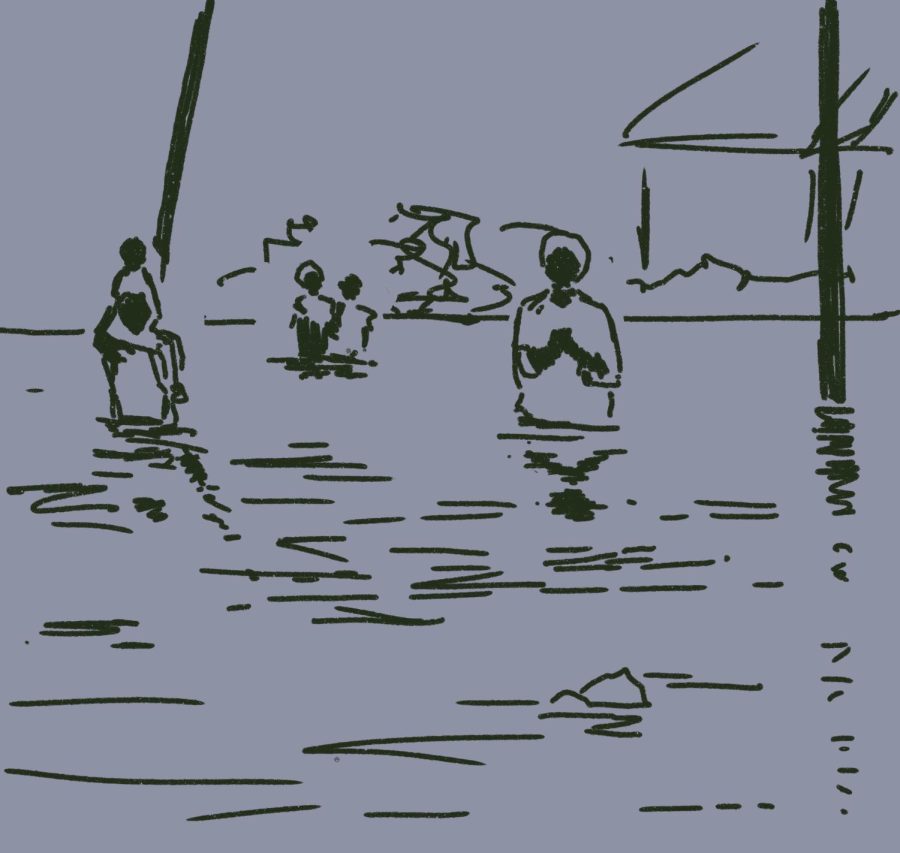Flooding in Nigeria Exemplifies Consequences of Climate Change
December 6, 2022
In 2022, climate change has caused flooding to significantly worsen across the world, particularly in nations such as Vietnam, Colombia, and Pakistan. Specifically, Nigeria has been experiencing drastic floods since September, leaving at least 600 people dead and over 1.4 million displaced, with farmland, infrastructure, and homes partially or completely destroyed throughout 86% of the country. This is the worst flooding the nation has seen in a decade, and many factors are contributing to this continuous humanitarian crisis. Factors such as damaging the ecosystem through construction on natural floodplains and urbanizing wetlands, on top of lacking enforcement of environmental laws, have all worsened the seasonal rains since June.
In the 1980s, Nigeria and Cameroon made a deal to construct twin dams to contain water overflows from the Benue River, which starts in Northern Cameroon and flows west into Nigeria. Cameroon has since constructed the Lagdo Dam; however, Nigeria’s Dasin Hausa Dam never came to fruition. This September, while Nigeria was wrestling with environmentally induced floods, water was released from the Lagdo Dam, due to the Benue River’s water pressure along Cameroon’s side of the border. The water flooded downstream into Nigeria and exacerbated the crisis.
Habeebat Lawal, whose house collapsed from the flooding, tells BBC News that “even when the flood subsides, we don’t have anywhere to go. No food, no money to buy cement, zinc, no money to rent a new house.” Besides homes being destroyed, many independent farmers have lost thousands of invested dollars from the destruction caused by floods. Jiga Barnabas owns a rice farm, and according to BBC News, spent over one million naira, or $2,300 dollars, on “land lease, herbicide, tractor rent, labor, seedling, and weeding.” He was hoping to earn back a profit, but his money essentially went down the drain after his land was demolished. A loss of crops and farmland also worsens food insecurity and will drive up the cost of supplies, and damaged roads and highways will cut off food accessibility for many. Besides malnutrition, people are now more prone to waterborne diseases, as many residential areas have poor-quality drainage systems that leave them clogged with waste.
While there are internal factors contributing to these floods, a large reason for them is the effects of carbon emissions and climate change caused by rich countries such as the United States, China, and Russia. According to a paper by the nonprofit Africa Center and the Energy for Growth Hub, most African countries contribute “essentially nothing” to climate change. Nigeria is home to more than 200 million people, and the consequences of climate change on the nation include droughts, poor air quality, at-risk human health, and floods. It’s not only an annual issue of heavy rains and the opening of the Lagdo Dam, it’s a long-term issue about climate change that needs to be addressed. Richer countries need to be held accountable and change the behavior that others have to experience the aftermath of.
This article also appears in our November 2022 print edition.











